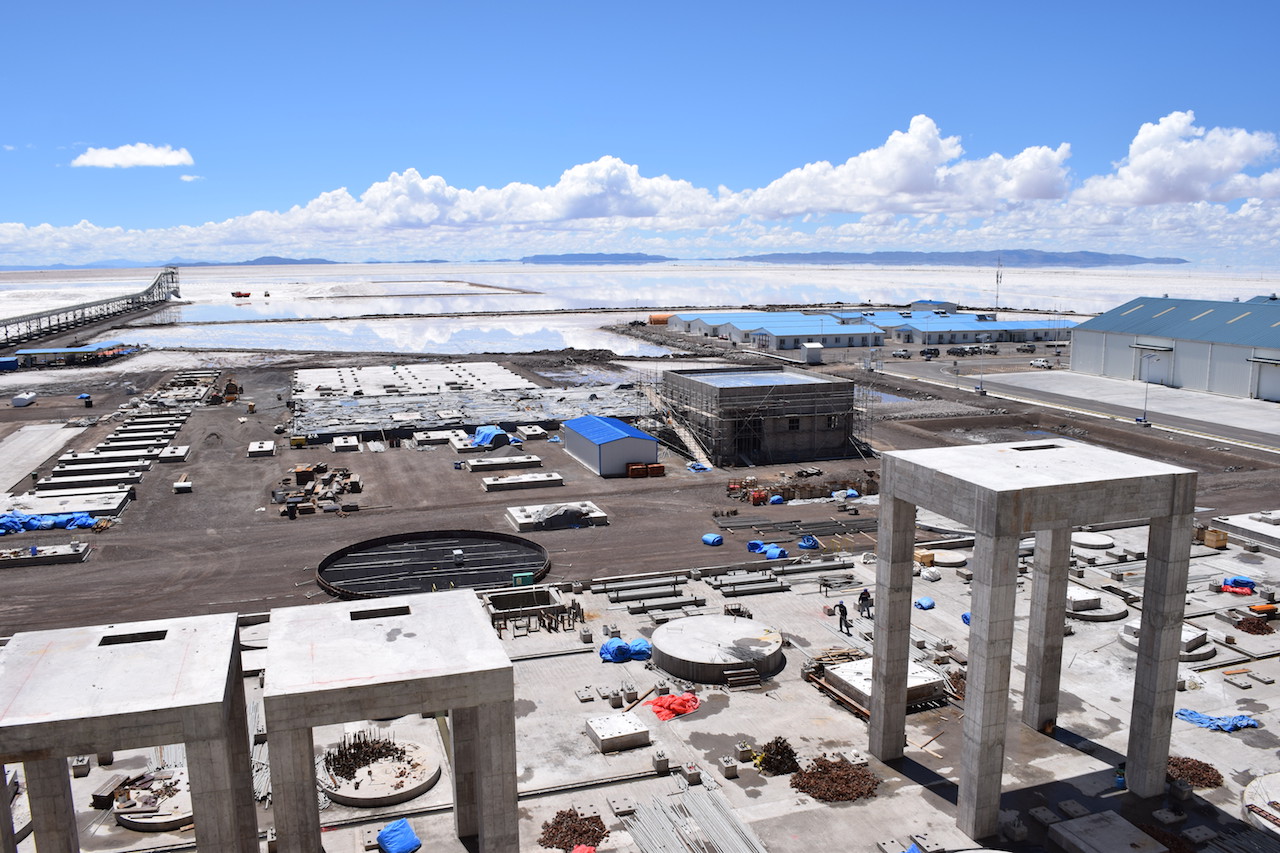State-owned Yacimientos de Litio Boliviano (YLB), together with Chinese companies CATL, BRUNP, and CMOC (CBC), will build two direct lithium extraction (DLE) production plants in Bolivia’s Uyuni and Coipasa salt flats.
They are scheduled for completion by 2025, and each could produce about 25,000 tonnes of high-purity lithium carbonate for batteries per year, according to the agreement signed in January between Bolivia and the Chinese consortium.
However, the International Energy Agency notes that achieving industrial production of about 8,000 tonnes of lithium carbonate or other salts will require six to 19 years, said Gonzalo Mondaca, a research associate at the think tank Bolivia Center for Documentation and Information (CEDIB).

“The radical change in technology to extract Bolivia’s lithium comes from the authorities not listening to scientists who said in 2014 that the evaporation system in Uyuni doesn’t work because of climatic conditions.”
Bolivia’s Uyuni salt desert has the largest known lithium deposits in the world.
According to the Latin American Council of Social Sciences, about 85% of lithium reserves are located in the so-called Lithium Triangle, which consists of Argentina, Bolivia, and Chile.
Beijing is on the hunt for this precious metal.
Chinese companies have been searching for years for deposits of the so-called white gold in various parts of the world, especially in Latin America, to make batteries for electric cars.
According to the Japanese newspaper Nikkei Asia, the Uyuni salt lake has a lower concentration of lithium ions than the salt lakes of Argentina and Chile, meaning higher extraction costs.
For Mondaca, the agreement between Bolivia and the Chinese consortium has new implications for community rights and the environment.
He said the agreement had not been made public, and its fundamentals were not submitted to an independent academic-scientific body for review.
CBC will provide infrastructure, roads, and startup requirements and coordinate mining activities with YLB.
Chinese companies operate nearly two-thirds of the world’s lithium processing and refining.
China continues to expand its economic, diplomatic, technological, information technology, and military influence in Latin America and the Caribbean.
Beijing has expanded its resource extraction capability, sourcing 36% of its food imports from the region and 75% of its lithium from South America.
China’s National Mineral Resources Plan (2016-2022) identifies lithium as key to ensuring national economic security and defense security and developing strategic emerging industries.
Chinese companies dominate Latin American lithium investment with acquisitions in Mexico and the Lithium Triangle.
News Bolivia, English news Bolivia, Bolivian lithium, Chinese lithium consortium

